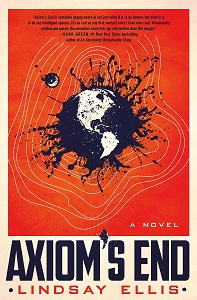Matthew Desmond, Evicted: Poverty and Profit in the American City
If your landlord signs the eviction papers, movers will simply show up at your door unannounced. Like an antimatter Santa Claus, they’ll gather your belongings and dump them curbside, with the common trash, or for an added fee, they’ll store everything until you can collect and move it. Chances are, though, if you’re too broke to cover rent, you’re also too broke for storage or relocation, so very probably, you’ll lose everything in one morning.
Social scientists have written extensively about poverty as an all-encompassing phenomenon, often folding eviction among poverty’s other crushing outcomes. But sociologist Matthew Desmond wondered about eviction, the tenant’s forced removal, in its own right. He followed eight households in 2007 and 2008 as their landlords turned them out, and two landlords struggling to make a living against delinquent payments. The observations he records are chilling. Sadly, they won’t surprise anybody who’s ever risked missing rent.
The households Desmond follows break into two camps: chronically impoverished Black city dwellers, and dead-broke White trailer-park denizens. Most are receiving some form of government poverty protection, in the form of food stamps, disability insurance, or other welfare. These protections, however, have remained frozen at such low levels for decades, while rents have skyrocketed, that after paying the landlord, they often have under $100 for every expense all month, including feeding and clothing their children.
Desmond’s two landlords break likewise, but aren’t in similar straits. Sherrena mainly rents to tenants who are Black like herself, while Tobin governs his White trailer park through low-wage employees, whom he hires on-site. Both are full-time landlords, meaning they make their living by maintaining their properties and collecting rent. If their tenants don’t pay promptly, they can’t cover their own expenses. They sometimes dance as close to penury as their tenants, but not often.
As Desmond tells his subjects’ stories, some important themes quickly arise. Tenants want the dignity and stability which the home brings. Desmond conveys this hunger when they tell their stories in their own words. They want to collect their mail reliably, send their kids to just one school, and where possible, look for work. But they can’t. Once you’ve been evicted, finding another house is nigh-impossible, so looking for safe housing becomes a full-time job.
Permanent insecurity becomes the dominant force in tenants’ lives. Work, family, and community become secondary to finding four walls. Though he tries to avoid too many narrator interjections, Desmond does quote some sociological research to contextualize his observations: researchers have demonstrated that lacking a stable address makes people less likely to engage with their communities. They live life in permanent expectation that they’ll be forcibly uprooted tomorrow. For children especially, this imprinting has lifelong consequences.
 |
| Matthew Desmond |
Reading Desmond’s prose, it’s clear he’s desperately trying to remain neutral on the conflict between landlords and evicted tenants. His sympathies, however, patently lie with the tenants. Fear and desperation increase the likelihood that they’ll make catastrophic mistakes and get evicted again. This means they have an adversarial relationship, not only with their landlords, but with other institutions of civic order, especially the police, who enforce property laws. Then the 2007 housing crisis hits.
Something Desmond treads carefully around, but avoids addressing too directly, is: housing cannot be a universal human right, and a lucrative capital investment, simultaneously. Landlords can only profit, and therefore make a living, if housing is valuable, meaning scarce in relation to demand. Given the choice between property rights and human dignity, the system demands that landlords choose property, because if they don’t, they’ll lose their own dignity, too. The system is rigged to protect stuff.
This book began as Desmond’s doctoral dissertation, and that influence remains visible. Though he’s worked to translate his most opaque passages into vernacular English, and has retained his subjects’ coarse language, he sometimes has to explain difficult context, which can mean passages of dense academese. These passages are rare, though. Desmond has mostly crafted a chilling account of how property, or the lack, transforms human value systems. This book is tough reading without feeling convicted.


























